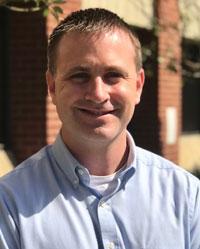You are here
Carl Weaver
Carl Weaver
Medical Physicist
Institution:Piedmont Atlanta Hospital
Location:Atlanta, GA
Education:
Purdue University
Georgia Institute of Technology
Please refer to AAPM website for full description: http://www.aapm.org/medical_physicist
I learned about SPS while majoring in physics at Purdue University. I recommend physics as a major, based on my undergraduate experience, and for all the opportunity that opening up to me as a result. After completing my bachelor's degree, I started my professional career as a high school physics teacher. I did this for six years, and I became a better student of physics by teaching it. I then entered graduate school in medical physics at Georgia Tech. I completed a master's degree and then started work in a radiation oncology clinic as an associate physicist. After four years of clinical work and three ABR exams, I obtained board-certification. I am now a qualified medical physicist, and I put my talents and physics knowledge to task in assisting radiation oncology doctors in safely treating their patients with radiation therapy. I find my job as a medical physicist to be very rewarding.
Three specific areas of my job excite me the most:
1. Participating in stereotactic radiosurgery, including Gamma Knife, brings me great satisfaction. I enjoy seeing a patient's brain on follow-up MRI scans and seeing the targeted areas looking normal again.
2. Participating the beam scanning of the linear accelerator, whether as part of an annual inspection or as part of a dose calculation algorithm commissioning project. It is exciting to work with the big equipment and fancy water tank scanning system.
3. Participating in brachytherapy special procedures. I enjoy seeing a post seed implant CT scan of the male pelvis to see the dose evaluation. I also like to compare the low dose part of the brachytherapy treatment and compare it to external beam prostate treatments.
I have found it necessary to be assertive in order to set appropriate boundaries with work, which can be frustrating. While I am a salaried employee, I prefer only to work weekdays and not weekends. I work more than 40 hours per week, with 50 being typical, which I cram into Monday-Friday. I do have to work weekends a few times per year (annual inspection - water tank scanning mentioned above), and I negotiate with my employer to allow me to have a flex day off during the subsequent Monday-Friday in exchange.
Challenges:
I have realized that as a medical physicist, I take on a great deal of personal liability. Mistakes made by medical physicists can have very serious consequences. To cope with this realization, I have had to prove to myself that I can work very carefully and with focused attention. I have also had to grow through criticism from my peers, which is good and in line with my personal goal to work safely.
Advice:
If you consider yourself an aspiring physicist, the I assume you have already taken a formal course in physics (high school or college) and found it to be interesting. You are also probably good a math and could aspire to become an engineer.
Let me encourage you to choose physics as your undergraduate major, instead of engineering. While engineering is an excellent choice, I expect your experience as a physics major to be better. Your class sizes may be smaller. The department may be more interested in keeping you in your major instead of trying to "weed you out."
Make computer learning a priority. Purchase a textbook on computational physics, and start learning to write computer programs now. You will find computers to be integral to whatever work you do in physics in your future.
Job Sector: Highest Degree:
